A Space for Everyone
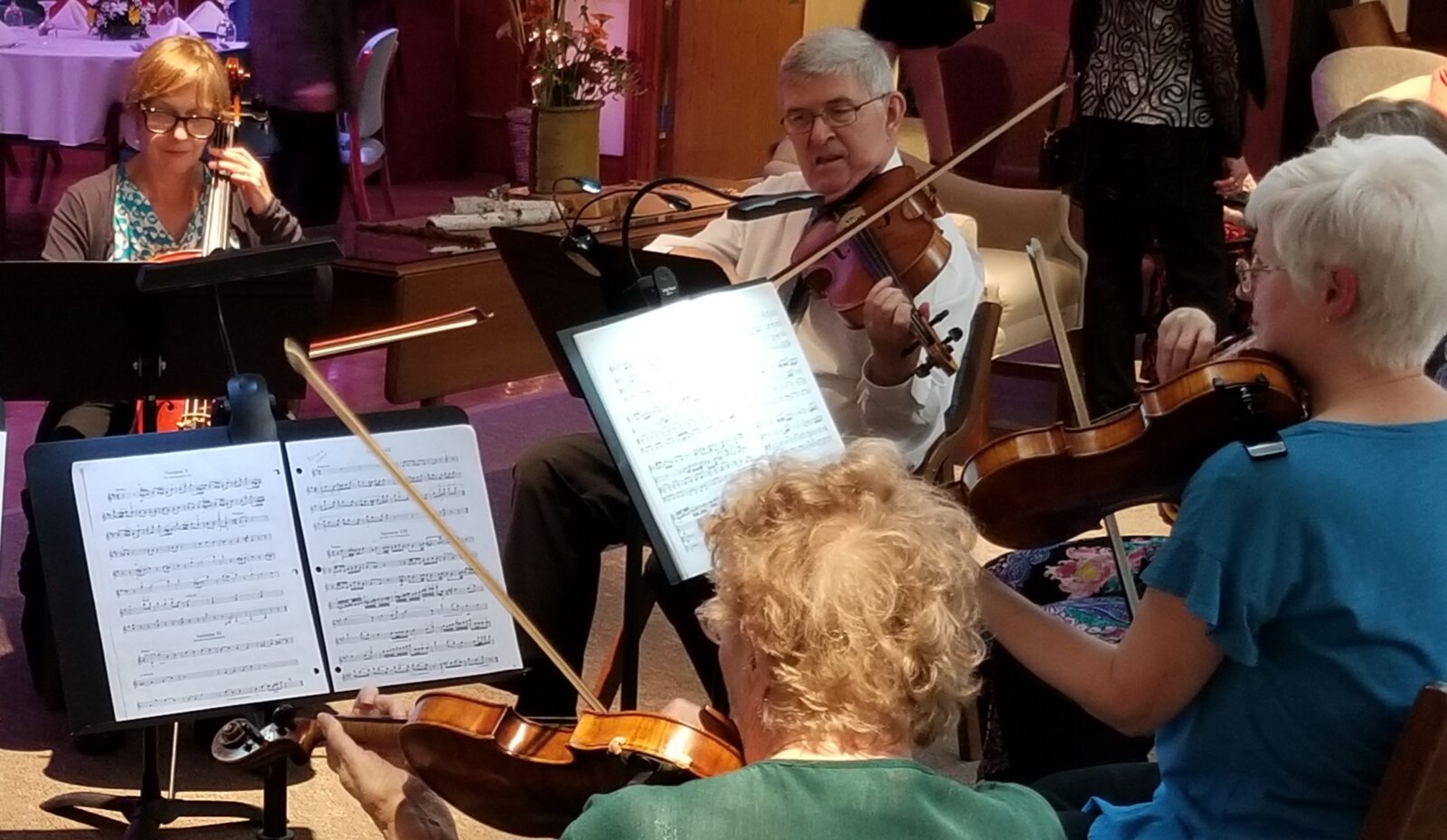
At a recent chamber music weekend, a friend and I had two completely different reactions to playing with an individual who clearly was having physical difficulties. These differences led to the exploration of the following questions: When should one put down one’s instrument? Should friends discourage friends from playing when their physical capabilities are compromised?
The weekend in question was a semi-annual meetup of roughly 60 string players and a few pianists. There are 3 sessions a day, 2 hours each, over the course of a long weekend. There are no entrance criteria. All are welcome to participate. Participants are placed in a different group each session and the group reads whatever music they choose. For those who want to prepare something in advance, there are suggestions provided. There is no coaching;
the only costs are lodging, travel and a very small administrative fee (under $100!). As would be expected in this context, the skill level varies dramatically, from people who are relatively new, inexperienced players to those at expert level who also attend top tier, highly selective workshops. Until the most recent weekend, however, I didn’t realize how wide the skill level might be.
In workshops such as these, where anybody can show up, I expect that I will get at least one bad session. In my definition, a “bad session” is one in which one or more players can’t follow the music or they play completely out of tune or they carry a tempo that doesn’t match anybody else’s or they can’t count, or, or, or….you get the picture. This happens at least once in these settings and is to be expected. In the most recent workshop, however, I was placed in
a string quartet with a violist, I’ll call him Mark, who had what I assume was a very pronounced essential tremor.
When I played with Mark I was completely distracted by the uncontrolled movements of his bow arm. He clearly had some physical issue and although he was playing, very little sound was coming out. When I did hear notes, they were always a bit behind where they should have been. I assume this also was due to a lack of motor control. I could hear enough to imagine that Mark had been at least a decent player at some point, but simply could not make it happen anymore.
With his spastic movements and barely audible notes always behind the rest of us, sitting next to Mark was hard. I had a difficult time focusing and staying with the other 2 players, trying to make music while distracted by the jerky actions happening to my left. I started to get irritated. I started to wonder who had let Mark be a part of the weekend. Who had let this guy in? Of course the answer was that the nature of this particular weekend is that everybody is allowed in. So then I wondered, why does Mark want to be here? Surely he knows that he can’t
control his bow. Surely he knows that his playing is not good — that he’s not making a nice sound or keeping up with the rest of us. So why is he here? Why is he exposing himself in this way?
There was only one answer that came to mind. He was enjoying it! He was having fun! He was appreciating what he was able to do rather than focusing on what he was unable to do. And along the way he was enjoying the camaraderie and personal connection that comes with playing chamber music. This realization allowed me to shift my own focus. My job during this session wasn’t to make beautiful music for all to hear. My job was to create a space where Mark could have the pleasure of playing. His distracting movements were still a challenge, but now, rather than being resentful about them I could have compassion and keep my eyes on my own music, allowing Mark to do his thing to the best of his ability. It was frustrating and difficult playing with Mark, but everybody in the group was kind. We prevailed and had a 2-hour session of string quartets that had some decent musical moments. I was exhausted from the efforts and reported as much to my housemates afterwards.
The next day one of my housemates – I’ll call her Connie – was assigned a session with Mark. Connie is an avid and accomplished chamber violinist. She is also one of the most prepared and conscientious people I know. After her session with Mark she begged us to promise that if she ever got to such a state as Mark’s that we would insist she put down her fiddle. She was absolutely adamant that she did NOT want to make others suffer by having to play with somebody so compromised; we absolutely were not to allow her to ever do so. The contrast between our reactions disturbed me greatly, and it took several days for me to figure out why. Why had the two of us had such different reactions to playing with the same perfectly nice but physically challenged person? Connie is not an unkind person, but she does expect a lot of herself and, my extension, of others. Her request, in fact, was to prevent the suffering of others. I listened, but was silently unwilling to make that promise. Why? And why did the request stick with me for days? As I thought about this, flashbacks to conversations with other musicians came to mind.
There was the conversation with Phyllis at a continuing care retirement community who had just gotten back from playing duets with Stacy, who was in the nursing home section. Stacy couldn’t really play anymore, but she absolutely loved whenever Phyllis showed up with her violin and offered to play duets. I got the impression that not much music came out during those sessions, but Phyllis went with her violin once a week and “played duets” with Stacy, much to Stacy’s delight.
I also thought about the story of Daniel, who had been a very accomplished cellist and was now living in an Alzheimer’s ward. His daughters, one a violinist, the other a violist, visit often, bringing their instruments. When they ask Daniel if he wants to play he will happily toddle over to an armless chair, plop down with legs spread, and one of the daughters will place his cello “in position”. Sometimes Daniel doesn’t make it past playing scales; sometimes some form of duet gets played. But whatever actual music comes out doesn’t matter. Daniel’s eyes light up at the suggestion of playing the cello. No matter the sound produced, it still brings him great joy. From these stories and my experience with Mark I now understand that, at least for me, the music we hear with our hearts is always more important than the music we hear with our ears. This may not be true for everyone and it certainly isn’t true in all situations. We attend performances by world class ensembles expecting amazing music to enter our ears. And for some, the pursuit of audible perfection may be most important. But through this experience I came to understand that for me, the music we hear with our hearts is always more important than that which we hear with our ears. This was a profound realization and it explains a lot of my willingness to let go of perfection when playing in groups. What I had previously labeled in myself as laziness, or not caring enough to make the most perfect music possible, I now understand in a completely different light.
We often hear about including younger people and offering exposure for them to play with more experienced players. But what about players on the other side of that mountain – those whose capabilities are declining, not ascending? While there absolutely is a need for workshops that are selective, where the capabilities of players are well matched and where the goal is to create the best possible music, we also benefit when we provide space for those who don’t play as well as they once did.
To the questions of when one should put down their instrument or whether friends should tell friends that they should no longer play, I would say that we should keep playing as long as we enjoy it. As friends, we may want to direct people with compromised capabilities toward inclusive workshops and away from those that are more competitive. We may want to find places where kindness matters more than the quality of the sound being produced and discourage application to a Manhattan String Quartet Intensive, for example. I now understand
that just the act of playing can be what is most important.
What comes out in audible form doesn’t always matter. The social interaction and the remembering of what one has enjoyed throughout life can sometimes matter more. The playing of an instrument, no matter how poorly,
allows one’s soul to sing. And it’s important to have a space for this to happen.I am grateful to have had my experience with Mark. I am grateful that there is a place where he feels comfortable and where he can be accepted. I am grateful that my friend Connie was open about her concerns. Because now, Connie, I promise you this: Should your physical capabilities ever decline to the point where it might be miserable for others to play with you, as long as you wish to play, as long as it would be fun for you, as long as it would give you pleasure, it will be my honor to make music with you. I will close my ears, open my heart, and we will make beautiful music – no matter how it sounds. All names have been changed to protect the privacy of the participants.
More Articles
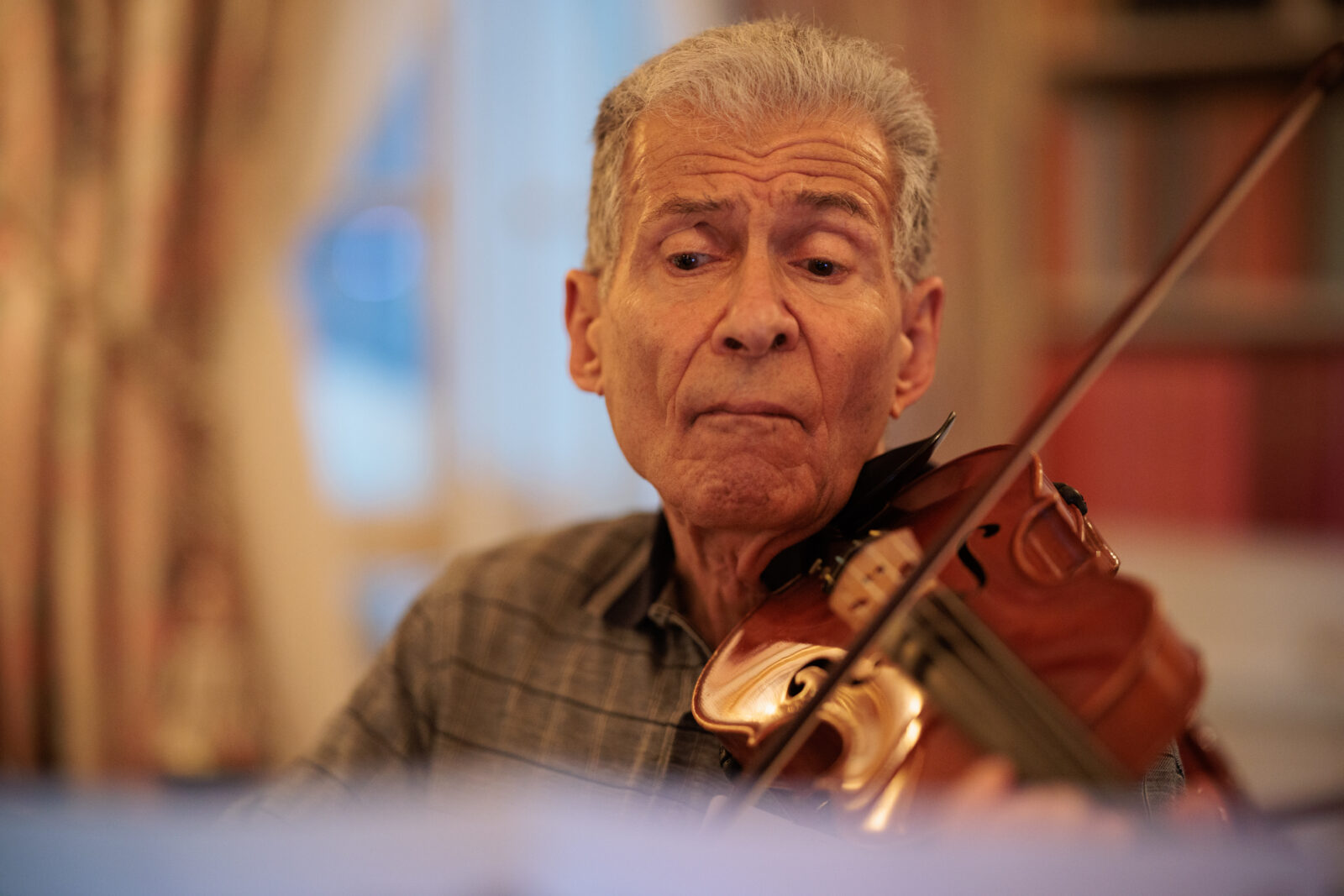
ACMP presents the 2025 Susan McIntosh Lloyd Award to the SoCal Chamber Music Workshop in memory of Ron Goldman
This past Fall ACMP gave its 2025 Susan McIntosh Lloyd Award for Excellence and Diversity in Chamber Music to the SoCal Chamber Music Workshop in honor and in memory of SoCal's founder and long-time ACMP board member Ron Goldman. Watch my interview with Julie Park and read Adam Birnbaum's touching tribute to Ron.Read More ↗

Turning ink blots into music – a discussion on the meaning and madness of notation
Join Cal Wiersma and a live string quartet for an illuminating class about decoding musical notation and translating it back into a musical line, live in Brooklyn and live-streamed on YouTube.Read More ↗

A New 5-Day Summer Home for Adult Chamber Musicians in Brevard
Brevard Music Center is launching the inaugural Adult Chamber Music Workshop, June 3-8, 2026, and we could not be more excited to welcome adult amateur musicians to our beautiful mountain campus in Western North Carolina. The program features focused rehearsal time, inspiring coaching, great colleagues at your stand, and the simple joy of spending time immersed in chamber music.Read More ↗
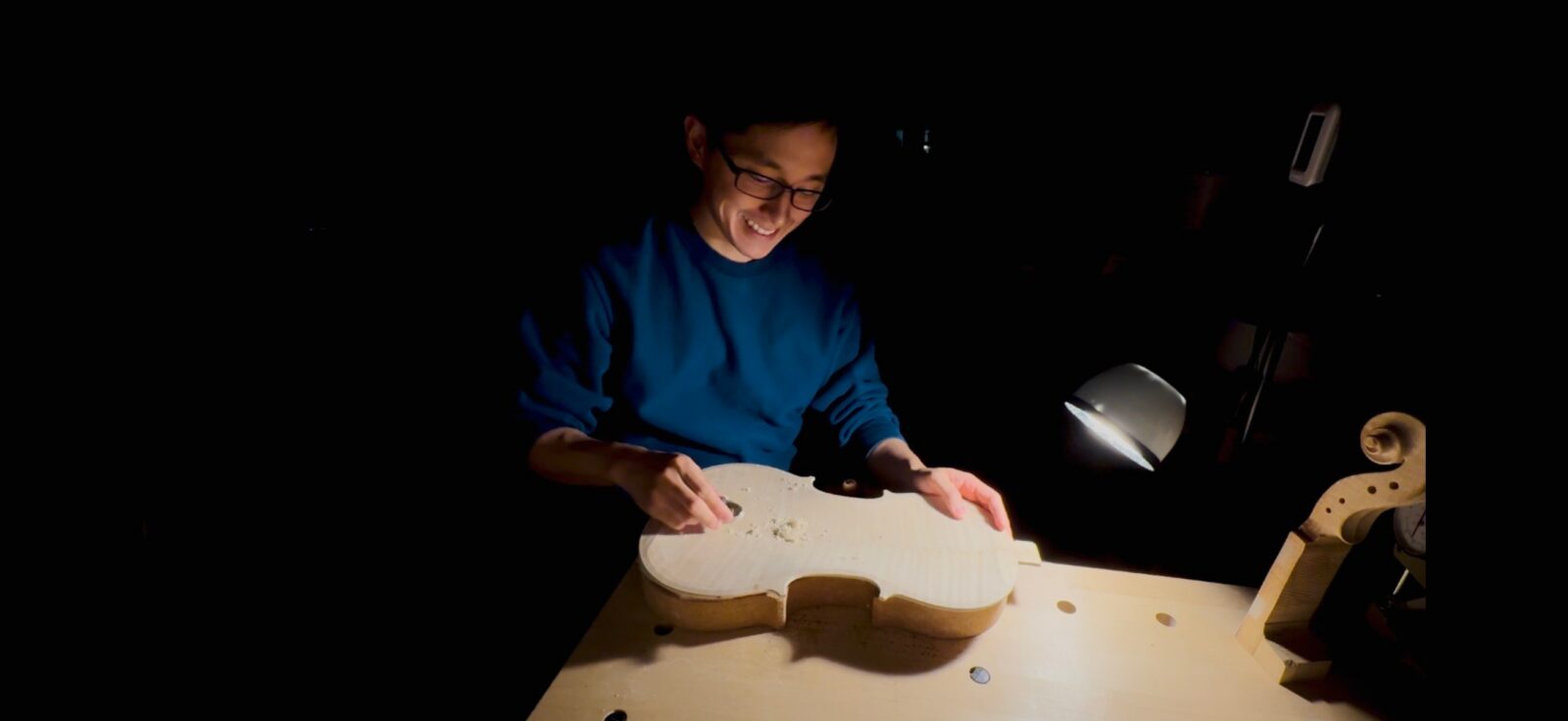
Charles Hsu – oncologist, violist, luthier
Charles Hsu has packed a lot into his 33 years. Born in the New Jersey, he grew up in Taiwan, moved back to the United States to attend MIT, and, after a stint as a management consultant, pursued his medical studies at Yale and Harvard. Today, he is Dr. Hsu, a junior attending medical oncologist at Memorial Sloan Kettering Cancer Center in New York. But through all of these pursuits, there is his love of chamber music.Read More ↗
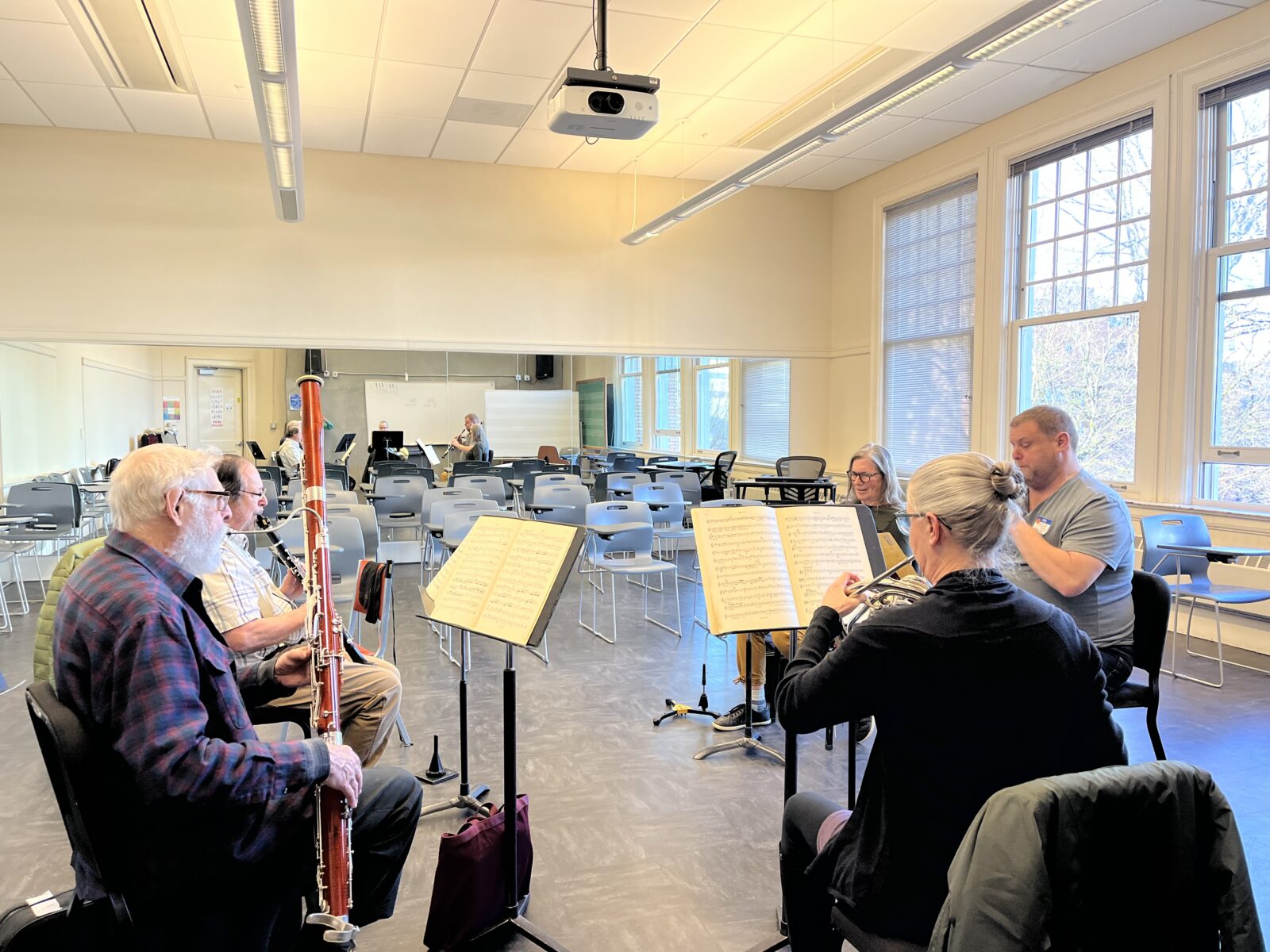
The Oregon-Washington ACMP Play-In
On January 17, 2026, 45 chamber musicians, ages 23-80, met at Portland State University's Music School Hall in Portland, Oregon for a Play-In organized by NAOC councilor Virginia Feldman.Read More ↗
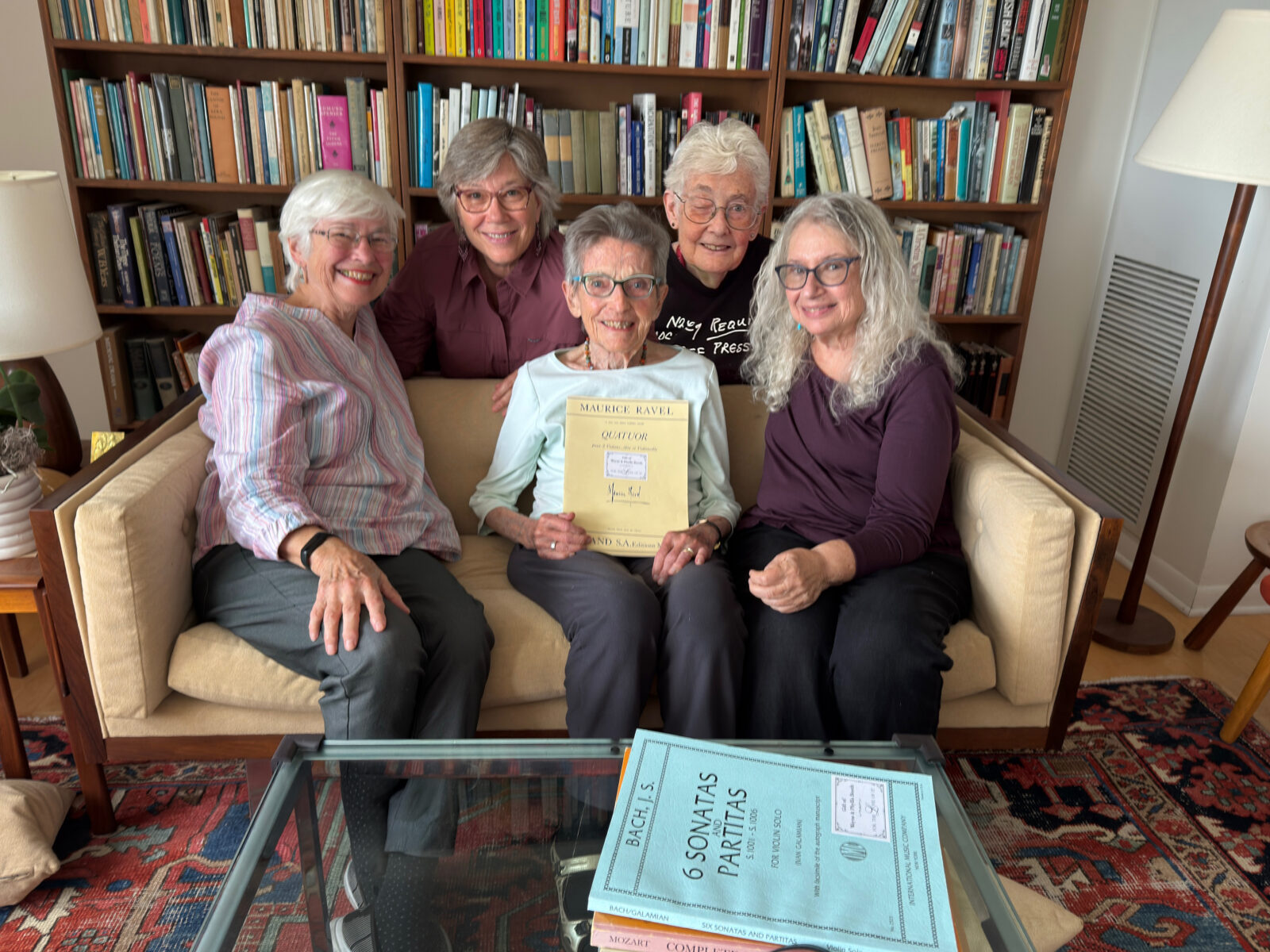
For the Love of It: A Legacy
What to do with all that music, when you finally, reluctantly, stop playing? At 99, Phyllis Booth decided to gift her collection to Golden Chamber Music at Sleepy Hollow, where she and her late husband Wayne Booth had a long, joyful connection since shortly after its founding in 1969.Read More ↗
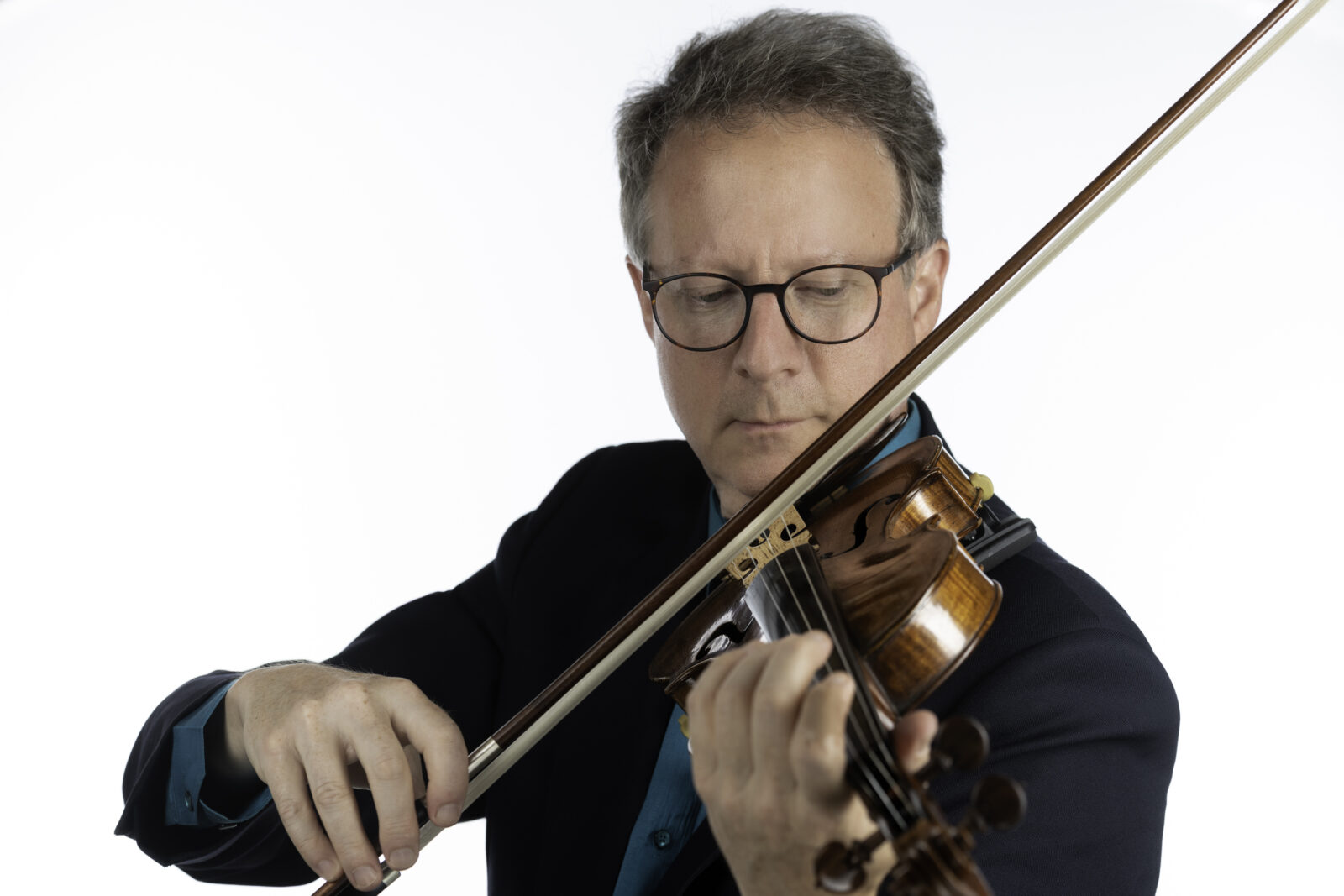
Everything you always wanted to know about bows but were afraid to ask
Join Gabriel Schaff - violinist, scholar and author of "The Essential Guide to Bows of the Violin Family" for an illuminating journey through the history of the bow to everyday tips (no pun intended) about caring for your bow, choosing a new one - and....everything you always wanted to know but were afraid to ask!Read More ↗
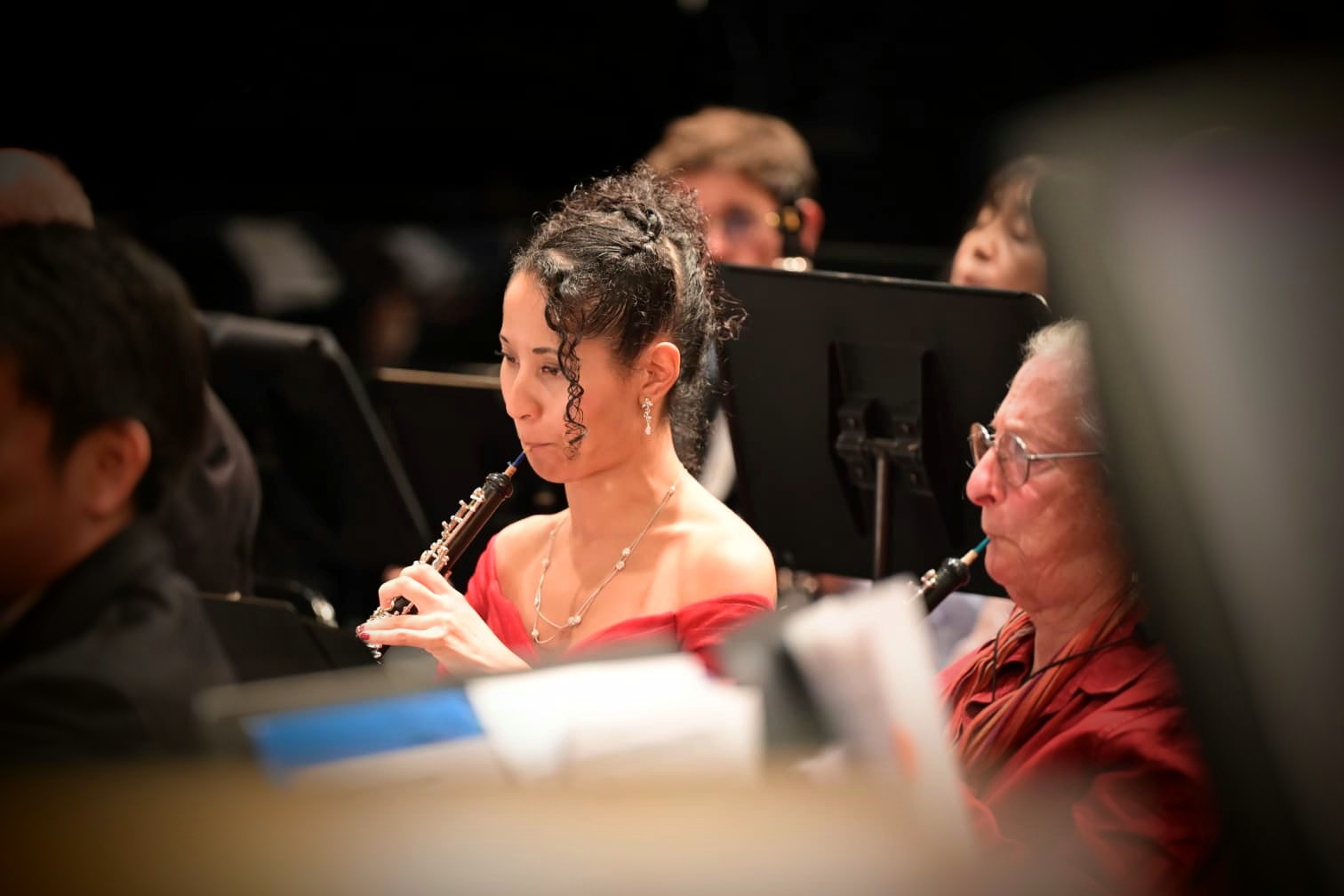
Kayana Jean-Philippe: The serious business of an amateur oboist
When it comes to the oboe, Kayana Jean-Philippe is what you might call a serious amateur – someone who pursues her passion at a high level, but does not make a living at it. One of her most consistent musical outlets has been the United Nations Symphony Orchestra, which she joined 10 years ago and is principal oboist. Another musical outlet is ACMP, which she said has connected her with new people and new musical opportunities.Read More ↗

Announcing the 2025 Holiday Caption Contest Winners!
ACMP's 4th annual Holiday Caption Contest was a success, with 69 captions from 41 ACMP members. This year's winners are Valerie Matthews, Peggy Reynolds, and Matthew Greenbaum. Congratulations to everyone who came up with so many wonderful captions for this year's cartoon!Read More ↗
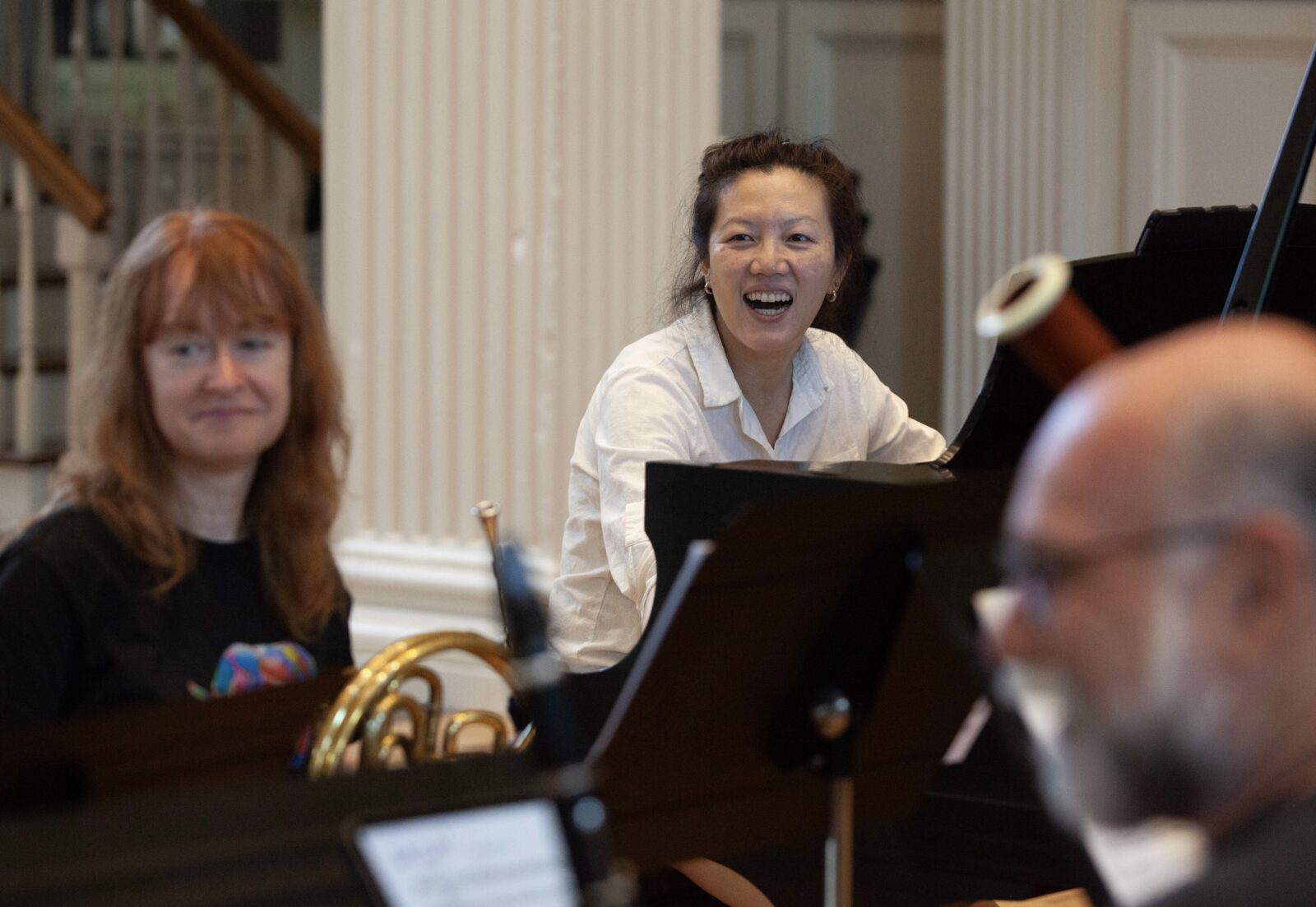
Announcing ACMP’s 2026 Workshop/Community Music Grantees
ACMP is proud to announce its 2026 Chamber Music Workshop and Community Music grantees. This year we awarded $168,000 in grants to 73 chamber music workshops and semester- or year-long programs in 10 countries, and 31 US states. (Photo by Claire Stefani.)Read More ↗

Mystery Donor Reveal: An interview with Louise K. Smith
An anonymous member of ACMP recently spearheaded a fundraising initiative for ACMP in the two week lead-up to Giving Tuesday, offering a $25 gift for each donation received from November 18, 2025 through Giving Tuesday (December 2.) This mystery donor just revealed her identity: Thank you, Louise K. Smith! I asked Louise some questions about her background as a pianist, involvement with ACMP over the years, and about her recent matching grant idea.Read More ↗

A Bridge from West to East – The Chamber Music of Reena Esmail
After a recent visit to her father's hometown in India, ACMP member pianist Sonya Subbayya Sutton returned to the United States with a renewed curiosity about her Indian culture and music. This led her to explore the music of Indian American composer Reena Esmail. Read about Reena's own voyage of discovery in Indian music and check out links to her scores and recordings.Read More ↗
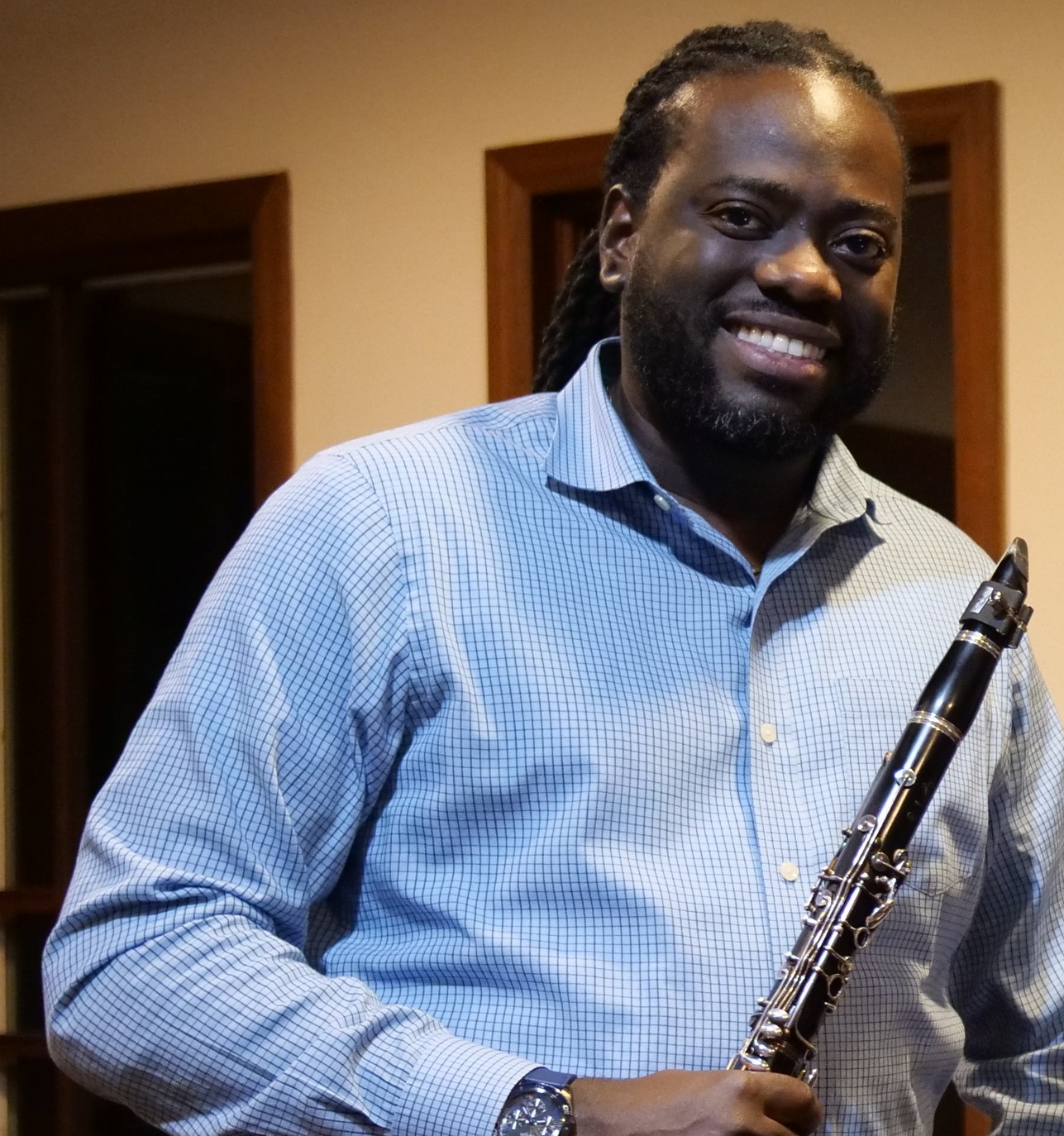
ACMP Member of the Month: Kwame Lewis
Kwame Lewis is not your typical accountant. Born and raised in Trinidad, he emigrated to the United States in 2003 at the age of 23 and set about building his career. Along the way, he lived in the Washington area for an extended period, got married, had two boys who are now 5 and 3 years old, and since 2019 has lived with his family in Melrose, Mass., near Boston. One constant through his journey, though, has been his love of the clarinet and chamber music.Read More ↗
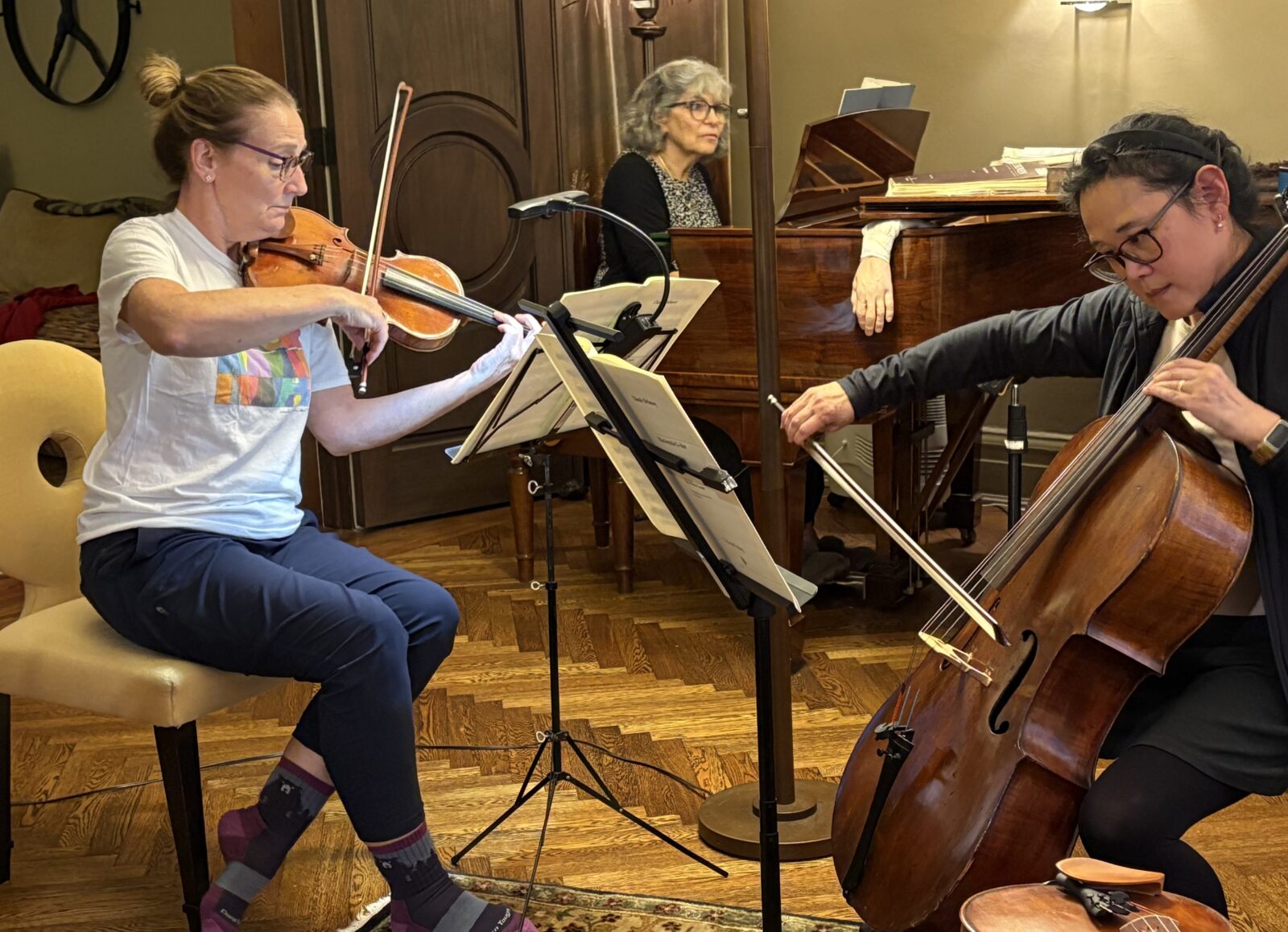
Chamber music for a cause: amateur musicians support Music for Food
ACMP member pianist and violist Arlene Hajinlian is as active a chamber music organizer as she is in sharing her time and space for social causes. This Thanksgiving holiday weekend she came up with a way for adult amateur chamber musicians to have a lot of fun while raising money to support New Yorkers in need: three consecutive chamber music parties as a benefit for Broadway Community through Music for Food.Read More ↗
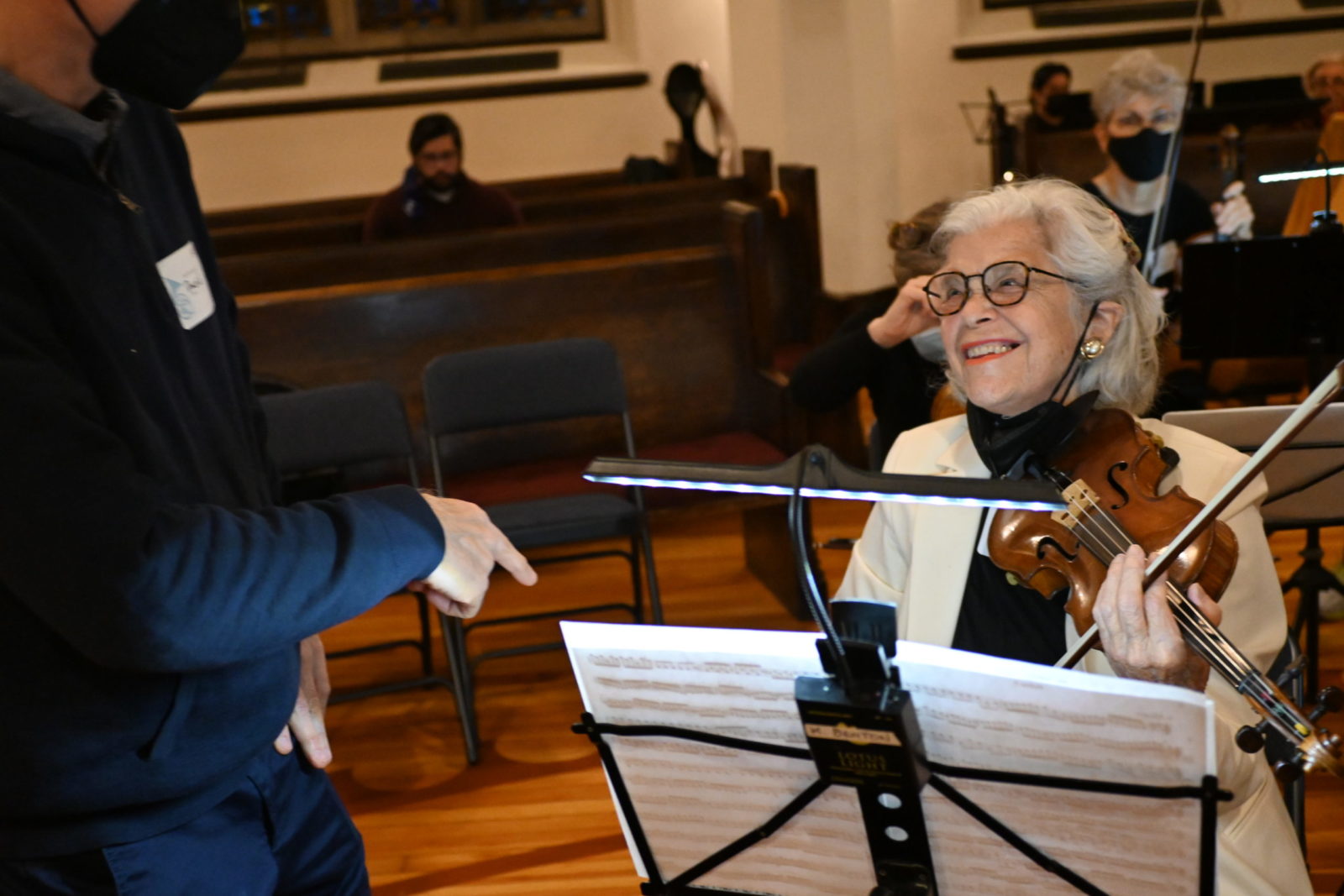
Remembering Kate “Kitty” Bigelow Benton (March 29, 1935 – November 2, 2025)
ACMP mourns the loss of Kitty Benton (1935-2025), a former board member, board secretary and longtime editor of the ACMP newsletter. Read about Kitty's life and watch a video of Kitty telling her favorite stories about ACMP in June 2021.Read More ↗
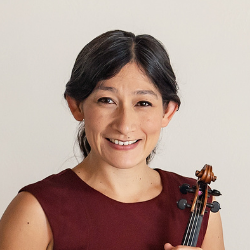
New Video – Meet The Artist: Harumi Rhodes
ACMP Executive Director Stephanie Griffin hosts a lively Zoom conversation with violinist Harumi Rhodes about her musical upbringing and career with the world-renowned Takács Quartet.Read More ↗
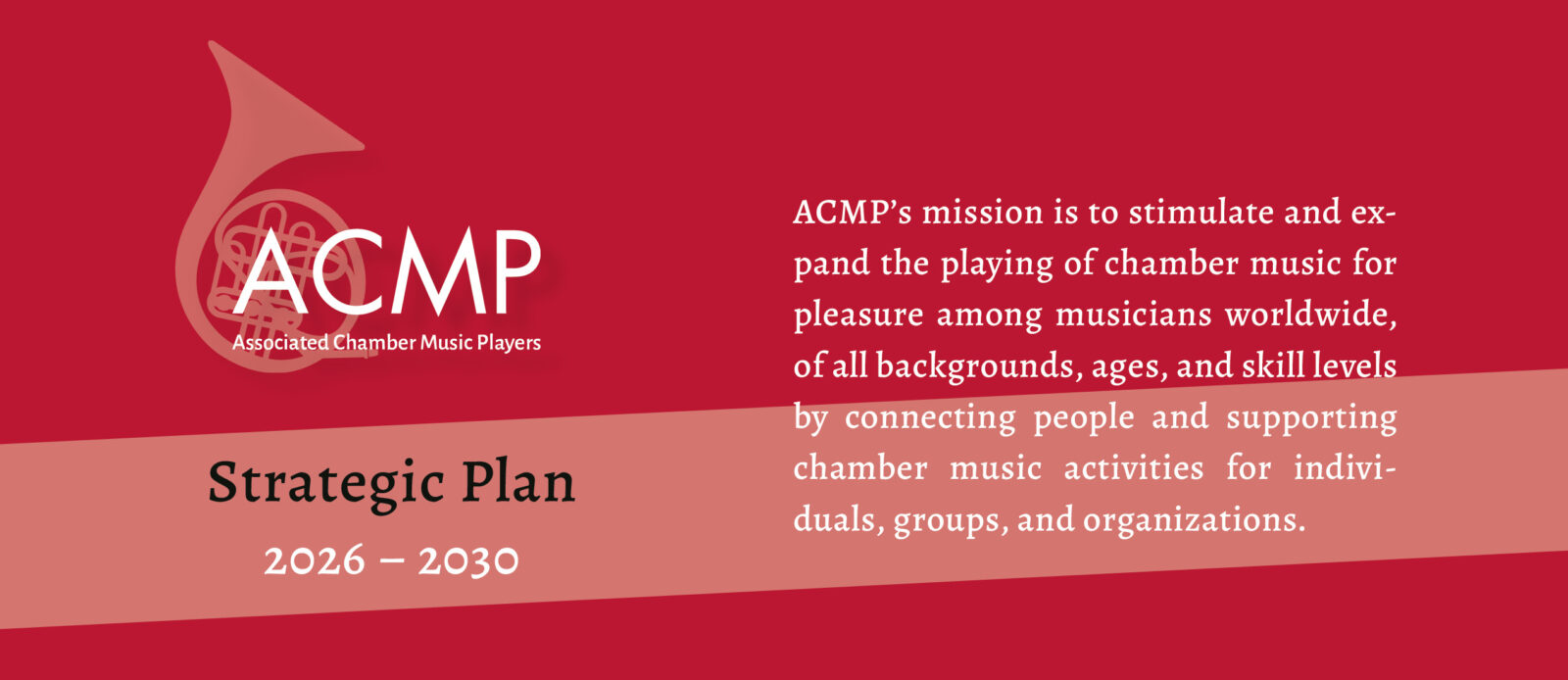
ACMP Strategic Plan for 2030
For the past several years, ACMP’s membership has grown dramatically, as has the popularity of its programs. Building on this momentum, ACMP’s Board and Executive Director completed a strategic plan to chart a course for the organization for the next five years. ACMP’s Board and Executive Director developed a new vision for the organization and a plan to strengthen member services, grants, operations, and finances to advance ACMP’s mission by 2030 and beyond.Read More ↗
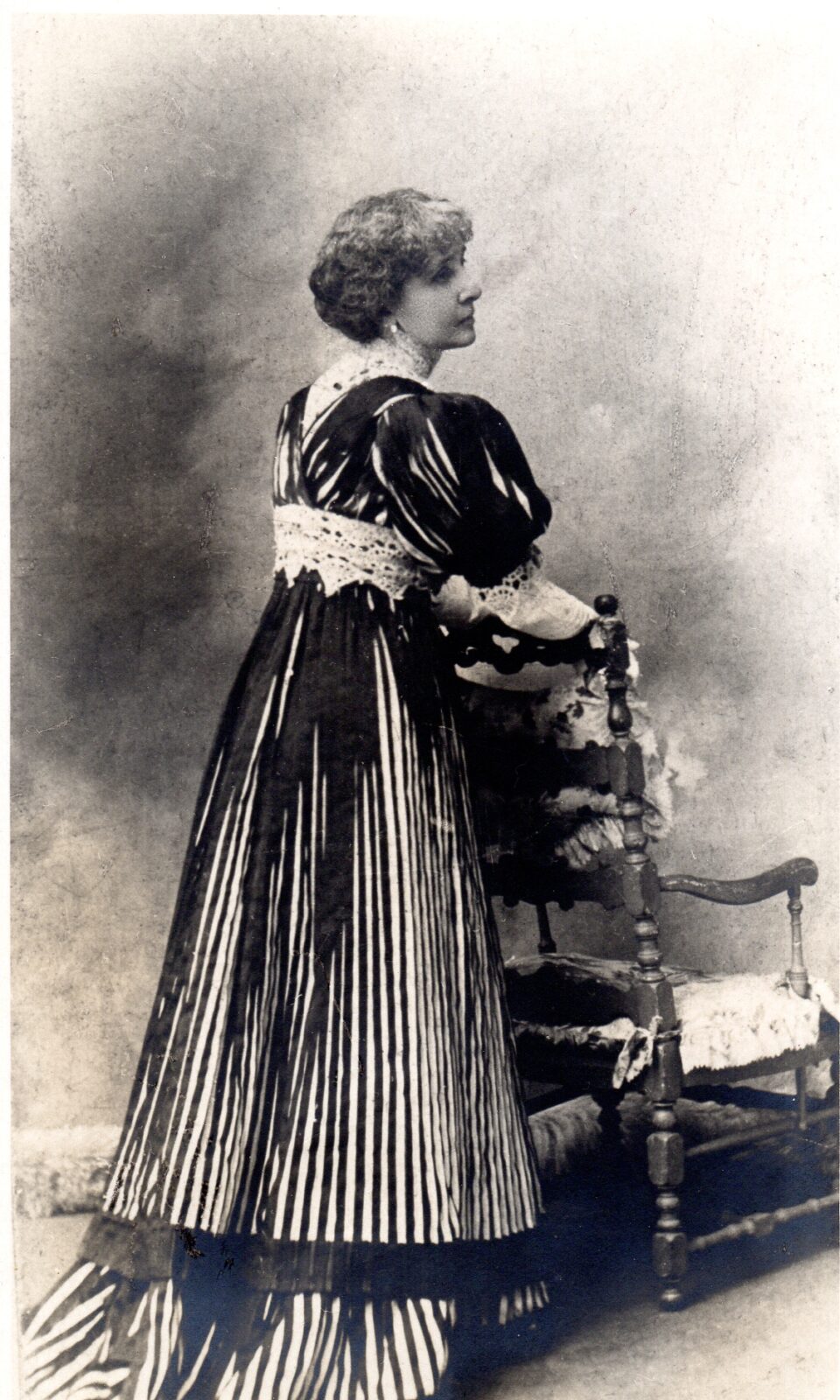
Drab, Inconspicuous, and Quiet No More
Washington, D.C.area pianist and choral conductor Sonya Subbayya Sutton is a passionate advocate of the work of women composers. Read about some of her favorite women composers and discover new chamber repertoire from her list.Read More ↗
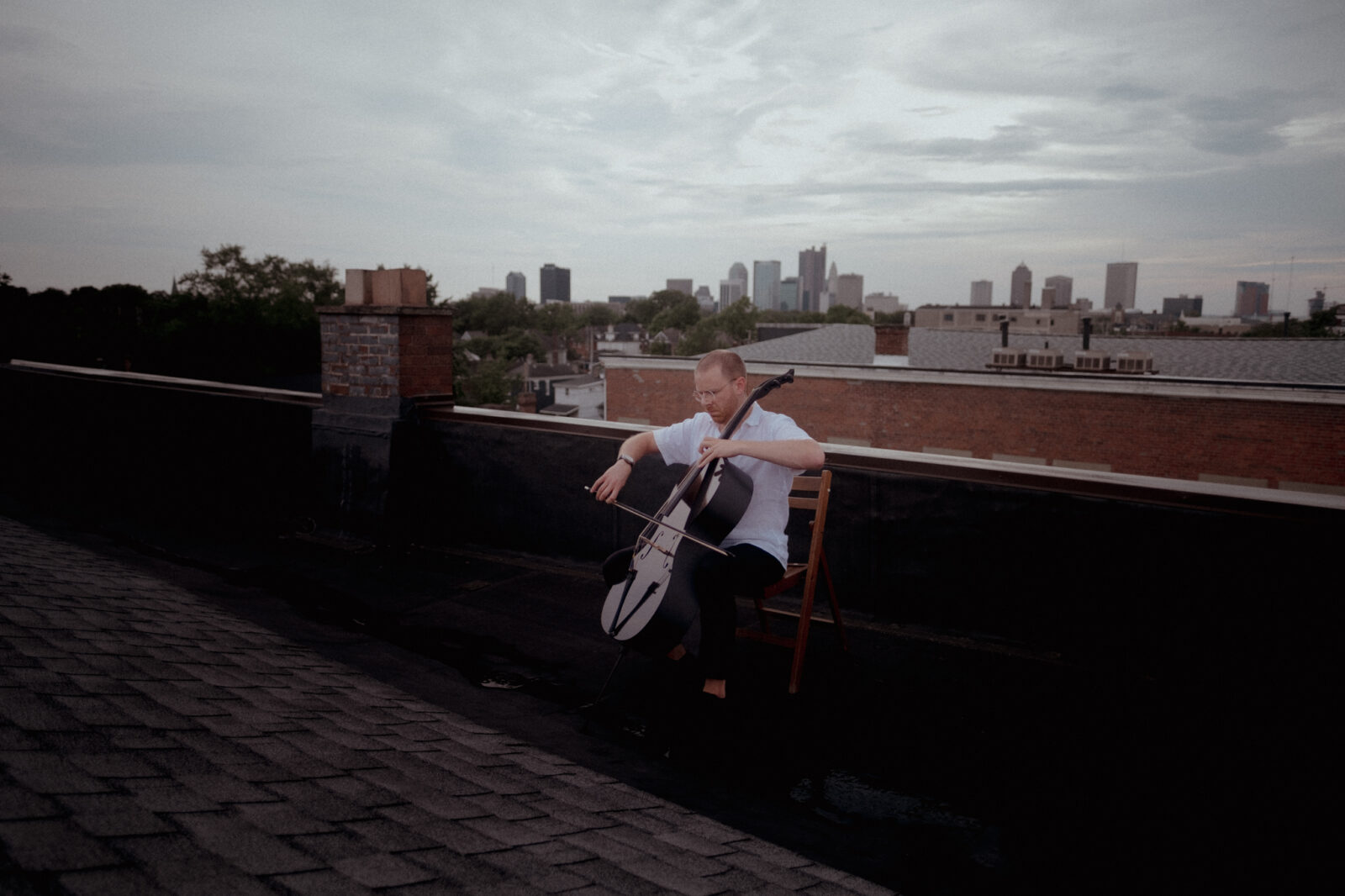
Andrew Brush: An amateur cellist with a global reach
After ACMP’s modest beginnings nearly 80 years ago, ACMP has grown to have a global membership, and perhaps nobody embodies this boundary crossing more than Andrew Brush. With his cello in tow, he splits his time between his home in Columbus, Ohio, and Buenos Aires, with visits to Europe and Istanbul, where his wife is from. Along the way, he has developed diverse musical interests, with influences ranging from Argentina to Mali. We caught up with Andrew recently after he had returned to Columbus, where he serves as a member of the ACMP North American Outreach Council.Read More ↗
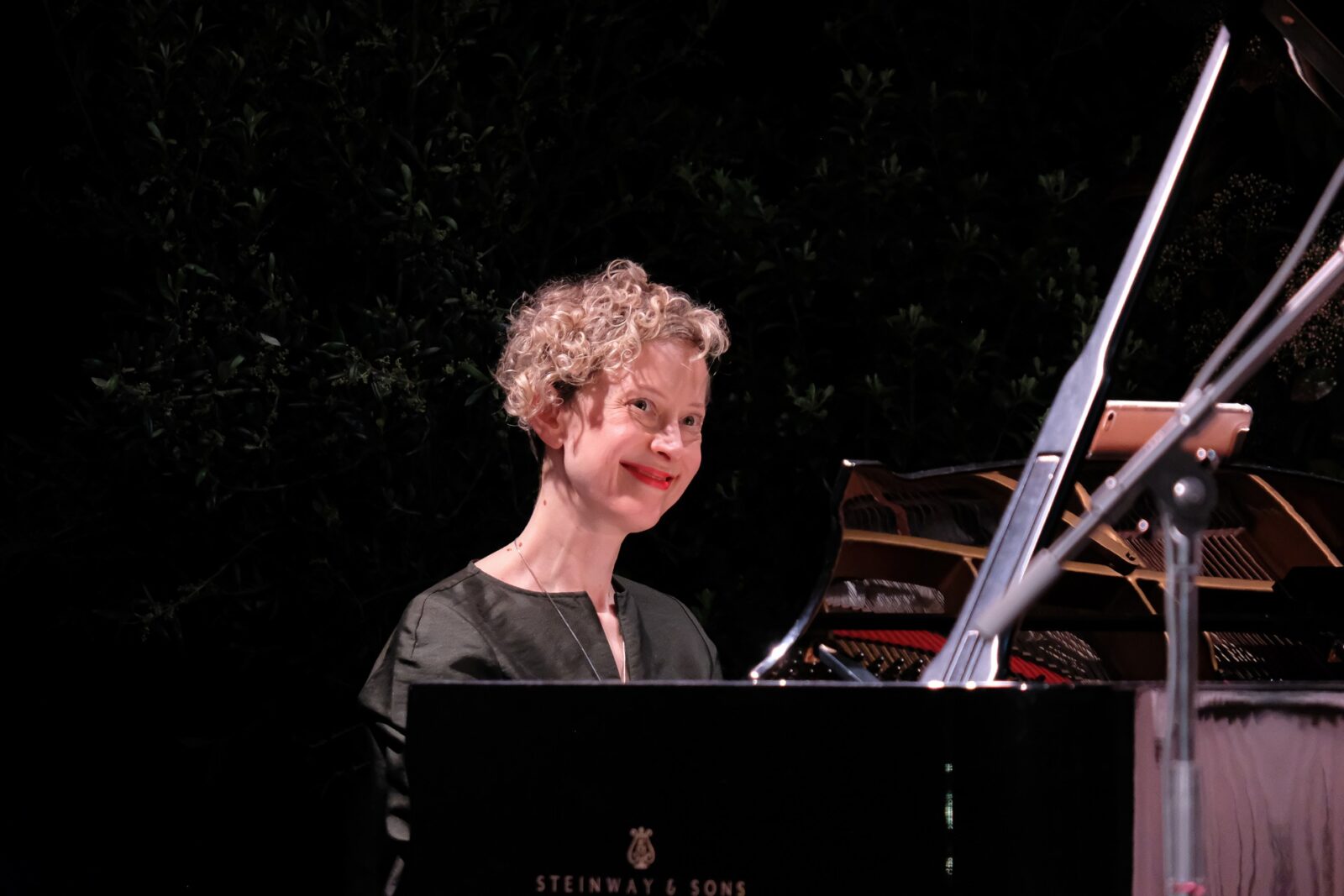
Befriending Performance Anxiety: simple tips for success
Performance anxiety is a universal experience, a survival mechanism that is hard-wired. Many of us react with shaky hands, lack of focus, shallow and fast breathing, rapid heart rate, and even feeling queasy. This is all perfectly natural - our protective sympathetic nervous system comes online to save us from danger, real or imaginary! Join Dr. Xenia Pestova Bennett for a free online webinar about managing performance anxiety on Thursday, October 30th at 6pm UK/Ireland time.Read More ↗